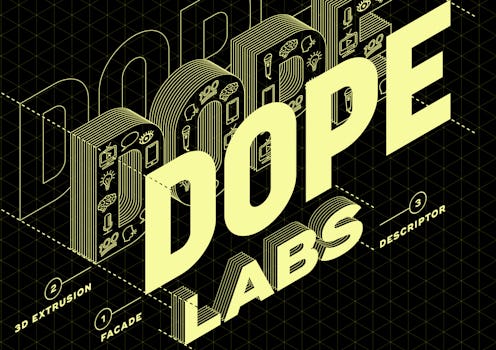Entertainment
Spotify's 'Dope Labs' Podcast Puts Everything From Cardi B To Cuffing Season Under The Microscope

The podcast industry shows no signs of slowing down, and while that might be bad news for the average fan struggling to catch up with the infinite number of podcasts available, it's a very good thing when it comes to diversity and representation. On Thursday, Spotify launched the original series Dope Labs, which is not only making room behind the mic for more women of color, but bringing science to the average person who maybe hasn't enjoyed the subject since receiving an honorable mention in their third grade science fair.
Hosted by former Duke University students Titi Shodiya, who has a PhD in Mechanical Engineering and Materials Science, and Zakiya Whatley, who holds a PhD in Genetics & Genomics and Cellular & Molecular Biology, the series explores the latest internet fads like ASMR, diet teas, and Mercury in retrograde through the scientific lens of their own professional training. The two best friends and self-described "dopest scientists you'll ever meet" met while studying at Duke and quickly bonded over their love of "trash on the internet", science, and their experience as black women ready to get the hell outta grad school — so you could say they've been making this podcast since they first met in 2011.
According to Shodiya, "Our science careers definitely prepared us for podcasting. Our training taught us to observe, identify knowledge gaps, and ask questions. There is plenty on the internet that makes us go 'hmmmm....' So we’re taking our training and applying it to trending topics in social media."
Their first episode — or "lab" as they call it (each 12-episode season is called a "semester") focuses on the science behind cuffing season. The episode is divided into segments titled "recitation," "dissection," and "the conclusion," all "-ion" words that sound like no fun at all, but after listening for 10 minutes, you're hooked and ready to enroll in their "dope" studies, all while celebrating cuffing season being officially over. As Shodiya explains, "Our show is for people who love science and for those who think they don’t really like science it too. There is science in everything and and we show it in a way that is fun and relevant."
Dope Labs is the first title to come out of Spotify's inaugural Sound Up Bootcamp. With only 22 percent of podcasts hosted by women, and even less by female minorities, the podcast industry has been led many women of color to question "Is this thing on?" Enter Spotify, whose week-long June 2018 intensive for aspiring female podcasters of color provided training and guidance to 10 women, chosen from over 18,000 applicants, courtesy of podcast veterans Rekha Murthy and Graham Griffith. Out of those 10, three women, Dope Labs host Titi Shodiya included, received $10,000 to fund their proposed podcasts.
All of this is good news for the female audience searching for more voices they can relate to. While 55 percent of the podcast listening audience remains male, the growth of the male audience has plateaued while the female portion is quickly catching up with a soaring 20 percent growth rate year-to year. And while podcasting is perhaps one of the most accessible creative mediums, with podcasting giants like Spotify providing women of color with the training to take a huge leap beyond the bare bones laptop-and-a-microphone setup and even Google following suit in October 2018 with their own podcasting diversity incubator, we can only expect the playing field to become more even in the year to come.